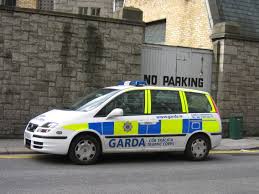The powers of the Gardai in relation to investigating crime in Ireland are quite extensive.

These powers include the power to stop you and make reasonable inquiries, the power to stop and search and seize evidence, to enter and search your premises and of course the powers of detention and arrest.
The power to stop and make inquiries
A member of an Garda Siochana has the power to approach any member of the public to make inquiries.
The Supreme Court decision in DPP (Stratford) v Fagan (1994) also held that the Gardai have the power to stop motorists and make inquiries-even where they have not formed the opinion that the motorist has committed an offense.
Despite this decision the Gardai do not have the power generally to stop you merely to put questions to you.
The power to enter and search premises
The Gardai’s power to enter and search premises are limited to
1. When they have a valid search warrant
2. Where there is a statutory or common law power to enter without a warrant (these circumstances are quite narrow, for example to attempt to assist if a building was on fire and people’s lives were at risk).
The Search warrant
A search warrant can be issued by a District Court judge or peace commissioner. The warrant will set out what is permitted and this may be the search of a person only, the search of a premises only or the search of both.
Senior officers of the Garda Siochana can also issue a search warrant in some circumstances.
Search warrants can not be issued willy nilly-the Guard seeking the warrant must swear “an information” that there are reasonable grounds for believing that an offense has been committed.
Searching of a person’s home
Entering and searching a person’s home is something that is jealously guarded by the Constitution of Ireland. Without a warrant any evidence obtained will be inadmissible in a subsequent prosecution unless there are extraordinary excusing circumstances.
Such circumstances would include a belief on the Guard’s behalf that it is necessary to safeguard life and limb.
If you are faced with a search warrant you should check it carefully to ensure that the right premises has been stated on the warrant and that whatever statutory power has led to the granting of the warrant has been strictly adhered to.
The Power To Stop and Search in Criminal Investigation
The Gardai have the power to stop and search a person under various pieces of legislation in Ireland. For example the Road Traffic laws, customs and excise laws and Misuse of Drugs Acts all confer this right.
It is important to note that when the Gardai do exercise this power the person who is stopped is entitled to know why and the specific piece of legislation under which they are being stopped and searched.
It is worth noting the anomaly thrown up by the Dublin Police act of 1842 which allows the Gardai to stop and search you on suspicion that you are in possession of stolen property.
But this law does not extend outside the Dublin Metropolitan district.
Power of search and seize
The Gardai have the power to search and seize, when they arrest a person, anything found on the person or at the place of arrest which they feel will be of evidentiary value in the subsequent prosecution of a crime.
This is a common law power but this power is also conferred by various pieces of legislation such as the Offences against the State act and Misuse of Drugs Acts. These pieces of legislation also confer the power on the Gardai to arrest a person who is found on a premises for which the Gardai have a search warrant.
If you have a question or concern, please use the contact form below. We respond within 24 hours, guaranteed.